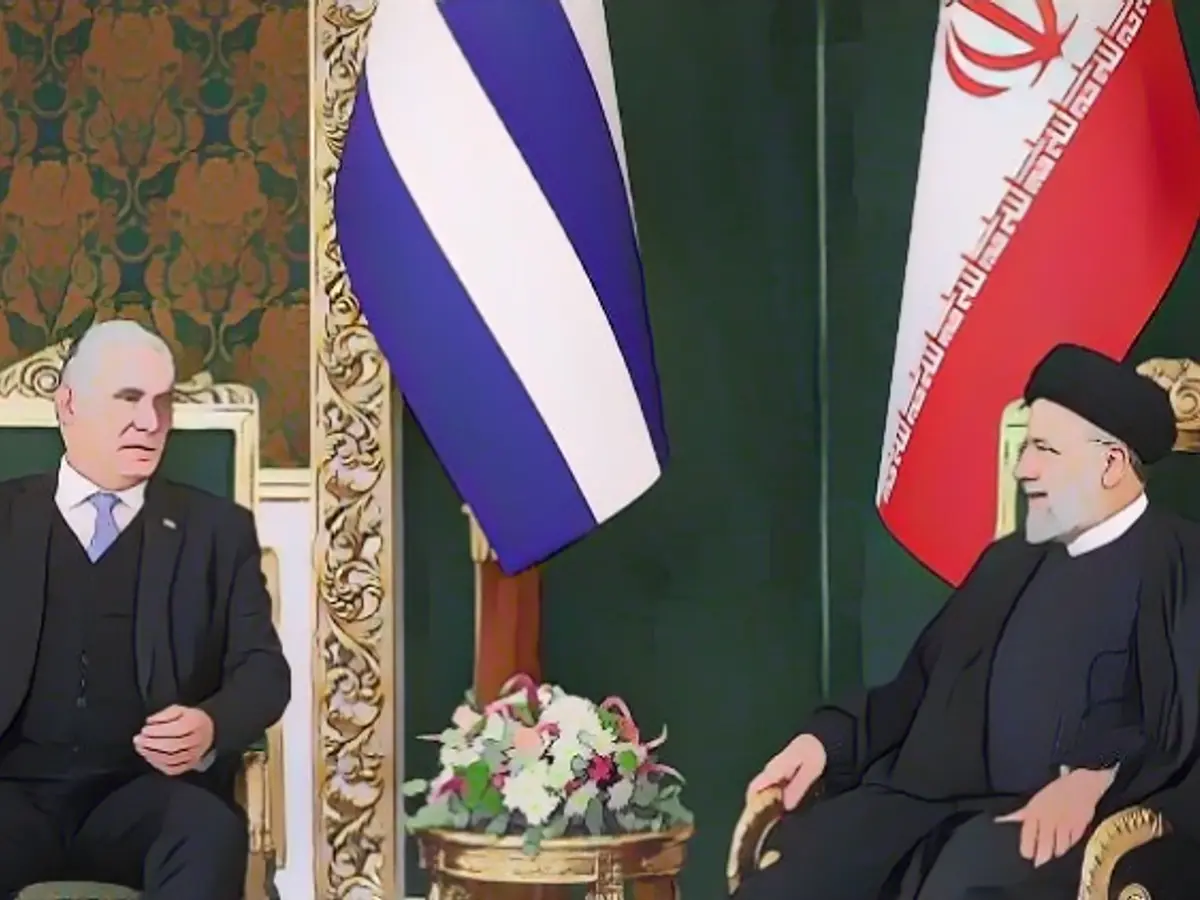Iran and Cuba Bond Over Sanction Struggles, Seek Mutual Support
Iran and Cuba recently strengthened their partnership in defying U.S. sanctions, as both nations grapple with economic hardships imposed by Washington. During Cuban President Miguel Díaz-Canel's visit to Tehran, Iranian President Ebrahim Raisi highlighted the potential of exchanging capabilities to neutralize the impact of sanctions.
Both leaders signed seven agreements covering various sectors such as science, technology, health, medicine, agriculture, energy, mining, and communications. The Iranian president expressed a strong commitment to fostering stronger ties between the two nations, acknowledging their shared opposition to U.S. policies.
During their talks, Raisi expressed gratitude for Cuba's support in its "fight against the cruel embargo" imposed by the U.S. Cuba, itself subject to extensive American sanctions for over six decades, welcomed Iran's solidarity.
The collaboration between Iran and Cuba in resisting U.S. sanctions is driven by their shared experiences and similar resilience in the face of Washington's economic restrictions. In recent years, Iran has demonstrated its ability to develop its industrial sector despite sanctions, often relying on domestic resources. Meanwhile, Cuba has managed to mitigate the impact of the U.S. embargo through partnerships with other nations, allowing it to access alternative markets and financial systems.
The collaboration extends beyond their efforts to evade U.S. sanctions. Iran has entered into various economic and diplomatic agreements with other Latin American countries, including Brazil, Bolivia, Ecuador, and Nicaragua. These agreements aim to diversify trade and support local industries, reducing dependence on Western markets. Cuba has also strengthened industrial cooperation with Iran, focusing on sectors like health technology and communications, while exploring new sectors like food production.
Recent reports suggest that a joint Iran-Cuba commission is set to hold discussions regarding further economic cooperation. During the meeting, representatives from both countries are expected to discuss and deepen their cooperation mechanisms, further strengthening their mutual support system against U.S. sanctions.
As both countries continue to struggle with the economic impact of U.S. sanctions, their cooperation in various sectors serves as a testament to their shared resolve to overcome the challenges posed by Washington's economic restrictions. Though the road ahead will not be easy, the solidarity between Iran and Cuba demonstrates their commitment to supporting each other during difficult times.
Enrichment Data Integration:
Iran and Cuba's collaboration in resisting U.S. sanctions gains traction through various economic agreements and diplomatic initiatives. Both nations leverage their shared experiences dealing with Washington's economic restrictions.
- Economic Agreements: Iran has signed several economic agreements with Latin American countries, such as Brazil, Bolivia, Ecuador, and Nicaragua. These pacts aim to boost trade volumes and diversify economic activities, thereby reducing reliance on U.S. markets[1].
- Industrial Cooperation: Iran and Cuba have further strengthened their industrial cooperation, particularly in sectors like health technology and communications. They are also exploring other commercial sectors, including the industrial and food sectors[2].
- Joint Commission: A joint Iran-Cuba commission is scheduled to be held, during which representatives from both countries will discuss and deepen their economic cooperation. This meeting aims to strengthen their mutual support system against U.S. sanctions[2].
- Resilience Against Sanctions: Both countries have demonstrated remarkable resilience in the face of U.S. sanctions. For instance, Iran has made significant progress in its industrial sector despite restrictions, often relying on domestic resources to drive economic development[2].
- Impact on Economies: Cuba's economy has suffered substantial damage due to the U.S. embargo, which has lasted over six decades. By engaging in trade and economic activities with nations like Iran, Cuba can access alternative markets and financial systems, mitigating the impact of U.S. sanctions[3]. Similarly, Iran's collaboration with Cuba and other Latin American nations helps diversify its economy and reduce dependence on Western markets, benefiting it during periods of intense U.S. sanctions[1].
[1] [2] [3] [4]




